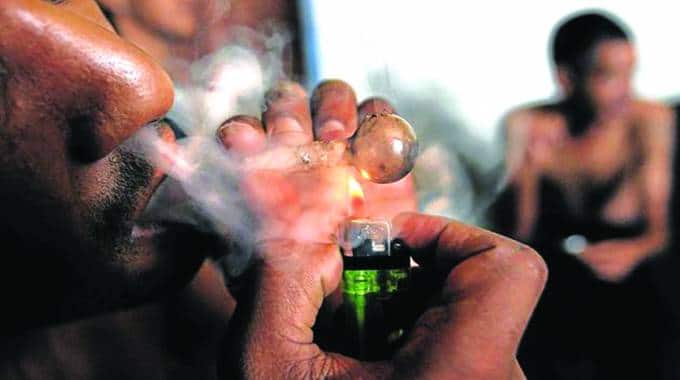Tackling Drug Abuse in Zimbabwe
Share

In todays society, drug use and its impact on mental health has become increasingly
significant. With countless individuals falling victim to substance abuse, it is vital to
explore and understand the complex relationship between drug use and mental well-
being. Drug use can have a wide range of dangers and harmful effects on individuals
and society.
The World Health Organisation (WHO) defines psychoactive drugs as substances
that influence mental processes such as perception, cognition, consciousness,
emotion, and mood when taken or administered into the body. The long-term
impacts on mental health due to drug use differ depending on the type of drug and
the user's physical and mental health. Prolonged drug use can modify brain structure
and function, resulting in memory loss, intellectual dysfunction, and abnormal
behaviour.
Understanding these dangers associated with drug use is crucial in raising
awareness, developing prevention strategies, and providing effective interventions to
address this issue.
ZimFact, Zimbabwe’s first national fact-checking organisation with a mission to help
the media to deliver accurate, fair and balanced news and information, reported that
drug abuse is growing among Zimbabwes youth and ruining their lives.
To combat this, the police conducted a crackdown on drug abuse, smuggling, and
trafficking in Harare in February this year, although no figures were released.
A recent New Ziana article reported that African youths under 35 years bear an
exceptionally high burden of substance abuse, with cannabis (commonly known as
mbanje) the most widely cultivated, trafficked and abused illicit drug.
According to a report by the Zimbabwe Civil Liberties and Drug Network, 60 percent
of psychiatric admissions in Zimbabwe were due to drug abuse. Eighty percent of
these were people aged 16 to 25, including schoolgirls, teenagers and adolescents.
However, drug rehabilitation centres are full and unable to cope with the rising
demand to accommodate new patients. There are around 14 rehabilitation centres
nationally, of which most are privately owned and unfordable to the ordinary citizen.
The centres are estimated to be holding or treating about 5,000 people at any time,
with tens of thousands others either not coming forward or receiving any assistance.
In Zimbabwe, roughly 45,000 adults (3 percent of the population) have a drug or
alcohol use disorder says WHO. Furthermore, 40 percent of the youth consume
alcohol while another 15 percent use cannabis regularly.
WHO also reports that Zimbabwe has 57 percent of mental health cases as a result
of the ever-increasing drug abuse. According to the same WHO report, the country
has the highest rate of people aged 15 to 19-years engaging in heavy “episodic
drinking” in Africa, with 70.7 percent being males and 55.5 percent being females
participating.
A local psychologist who specialises in addiction and mental health but speaking on
condition of anonymity said, “Drug use is strongly linked to mental health disorders
such as anxiety, depression, psychosis, and addiction. Some drugs can alter brain
chemistry and disrupt normal functioning, leading to long-term mental health issues.
For example, alcohol abuse can cause depression, crystal meth abuse can
result in psychosis.”
The psychologist also said drugs negatively impact the brain, leading to imbalances
in neurotransmitters and potentially triggering mental health disorders.
“Drugs bind to neurotransmitter receptors in a way that can then excite or inhibit a
response from brain cells. Thereby, interfering with the way neurons send, receive,
and process signals via neurotransmitters. Mental disorders can sometimes occur
before drug abuse. Many people with these symptoms may try to ease their distress
with drugs, but this only worsens their condition.
“Drug use can lead to various physical health problems such as cardiovascular
issues, liver damage, respiratory problems, and weakened immune system. Drug
abuse can also result in overdose, which can be fatal,” she adds.
Rudo Gaidzanwa, a sociology expert, encouraged young people to focus on other
activities rather than drugs.
When it comes to drugs, young people actually enjoy them because drug use is a
personal decision. They experiment and there is a sense of testing until one
becomes addicted. It is very difficult to prevent a child from going down that path
because they will encounter their peers. As parents, our task is to guide our children
by providing alternatives.”
Gaidzanwa highlights the negative consequences of parental absence in todays
society, particularly for individuals responsible for looking after children. This is
especially true for parents in the diaspora who have left their children in Zimbabwe.
By highlighting the impact of parental absence, Gaidzanwa sheds light on the
potential consequences, such as the lack of proper nurturing and guidance for
children which can contribute to them engaging in drug abuse.
According to the founding director of Labour and Economic Development Research
Institute of Zimbabwe, Godfrey Kanyenze, drug abuse places a significant economic
burden on society due to healthcare costs, lost productivity, and criminal justice
expenses. Additionally, treating and rehabilitating substance abusers also requires
considerable resources.
“Substance abuse places a significant burden on the healthcare system. Individuals
who abuse drugs often require medical interventions, such as detoxification,
rehabilitation, and treatment for drug-related health problems. This diverts resources
that could be used for other healthcare needs and can strain government budgets.
“Drug abuse often leads to decreased productivity among individuals, as it can
impair cognitive and physical abilities. This can result in increased absenteeism,
reduced efficiency, and lower overall output in the workplace. Consequently,
businesses may experience decreased profitability and economic growth may be
hindered,” said Kanyenze.
“The drug abuse can deter businesses from investing in areas affected by drug-
related problems, leading to decreased economic opportunities and growth.
Moreover, drug abuse can damage the reputation and image of communities,
making it less attractive for businesses to establish themselves. This can perpetuate
a cycle of economic decline in affected regions.”
Speaking on a local radio programme recently, Agnes Mahomva, public health
advisor to the President and Cabinet said one of her roles is to give advice on how
the nation can prevent drug abuse rather than focusing on prevention strategies. To
achieve this, Mahomva said the government will soon develop a Drug Abuse Control
strategy, with a focus on everyone’s participation to control the challenge.
She said: “Drug abuse challenge is everybody’s concern, not just the government.
All relevant stakeholders should take part to control the tide, we say no to drugs!”






